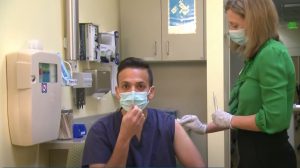NEW YORK (Reuters Health) – Oral zinc is not an effective treatment for acute gastroenteritis (AGE) in children from developed countries, suggest results of a randomized, double-blind, placebo-controlled study conducted in Poland.
Previous studies, systematic reviews and meta-analyses have shown anti-diarrheal effects of zinc in young children from developing countries where malnutrition and zinc deficiency are important problems, the study team notes. None of these studies, however, were conducted in well-nourished, otherwise healthy children from countries where zinc deficiency is rare, like Poland.
This led Dr. Bernadeta Patro of The Medical University of Warsaw and colleagues to evaluate the safety and efficacy of zinc in the treatment of AGE in their country. They randomized 160 children with AGE, ages 3 to 48 months, to receive either zinc sulfate (10 or 20 mg/day based on age) or placebo for 10 days.
In an article posted online July 12 in The Journal of Pediatrics, the researchers report that there were no significant differences between groups in the duration of diarrhea (the primary outcome), which they defined as three or more loose stools in a 24-hour period. The median duration of diarrhea was 58 hours in the zinc group and 39 hours in the placebo group.
Likewise, there were no significant between-group differences in the secondary outcome measures of stool frequency and vomiting frequency on days 1, 2 and 3, intravenous fluid intake and number of children with diarrhea lasting more than 7 days.
The proportion of children with diarrhea lasting more than one week was slightly higher in the control group (4.2%) than the zinc group (1.4%), but again the difference was not statistically significant.
Zinc therapy as used in this trial was safe, with no increase in the proportion of patients reporting adverse effects, over placebo.
The major potential limitation to this trial is the relatively high percentage of patients either lost to follow up (12 in the zinc arm and 7 in the placebo arm) or who discontinued the intervention (9 and 8, respectively, because of refusal to drink the syrup and parents




